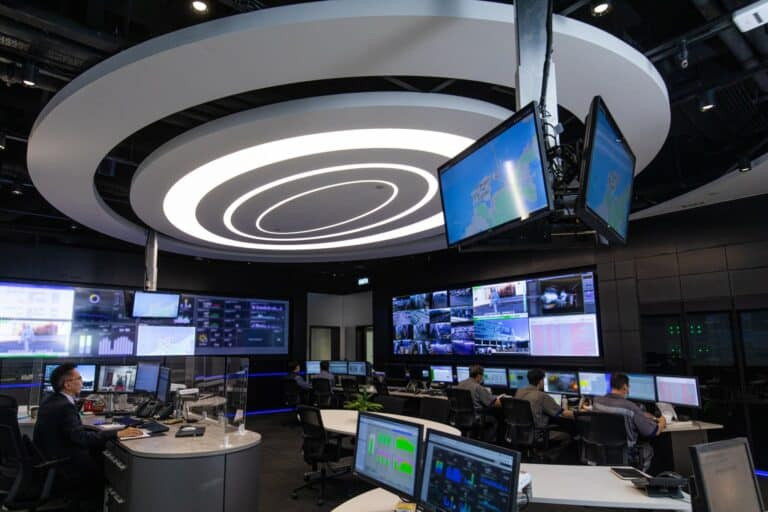Having commenced operations in 1976, Hong Kong Air Cargo Terminals Limited (Hactl) has been working to streamline cargo operations and turn the special administrative region into a world-class cargo hub.
With this mission at its core, the cargo handler has been on a digital journey for decades, starting with the COSAC community system that linked airlines, forwarders and Customs for the first time.
This ethos has continued throughout Hactl’s growth in the industry and, although there is still a way to go, the sector is much closer to digital integration today, paving the way for greater automation, robotics and artificial intelligence.
“Hactl demonstrated very early on in its long history, what could be achieved through innovation, investment and determination,” Wilson Kwong, Hactl Chief Executive, said. “Our current terminal and systems are probably still the biggest and most sophisticated anywhere, and pay dividends daily in productivity and efficiency.
“We are also using AI in our IT systems to prevent cyber-attacks. As for robotics, we trialled this with our Automated Parts Store, and are now using patrol robots to enhance security, and driverless tractors to help tackle recruitment challenges.
“Some of these developments are not yet commonplace in air cargo, but they soon will be. The industry needs the speed, efficiency and economies they deliver.”
READ: e-commerce goes into overdrive
Pandemic push
COVID was a game-changer for innovation, inasmuch as its focused attention even more on digitalisation, as a facilitator to remote working.
Paper processes create information silos. But modern shippers want visibility of stock location, and e-commerce customers want to know instantly where their goods are. Only integrated digital supply chains can deliver these abilities. Digital means remote working capability, no need for physical contact, visibility to all parties 24/7/365, updates from all parties, less work and errors, and reduced costs.
“By driving paper out of all our work processes, and by investing in the creation of a secure wide area network infrastructure, we are now able to operate all admin and back- office processes from any location,” Kwong outlined.
“Meanwhile, we brought forward the Integrated Hactl Control Centre (iHCC) project, which – by providing real-time snapshots across all operations – enables us to re-deploy resources and personnel optimally, and to cope with any unforeseen emergency.
“The much greater resilience this achieved was demonstrated by our ability to continue operating effectively with up to 45% of our ramp workforce quarantined during lockdowns.”
READ: Hactl wins another two Supply Chain Asia Awards
Airport alignment
Hactl credits Hong Kong’s success as a hub to this innovative attitude, unique blend of unparalleled scheduled air connections, freighter capacity and choice on all major routes, plentiful capacity, strategic location, modern and trade-friendly customs, supportive airport authority, bi-lingual workforce and strong work ethic.
“Thanks to the airport authority’s far-sighted policies and our own constant investment in infrastructure and technology, I believe Hong Kong is totally attuned to what our market needs,” Kwong explained. “We have a history of responding effectively to changing circumstances and tightening regulation.
“Hactl has long seen its task as meeting and exceeding the demands of customers. We consider ourselves partners in the success of our airline customers, and it’s in our mutual interests that we remain aware of new trends and opportunities, and enable our customers to capitalise on potential new revenue streams.
“This has led us to create a performance enhancement team which proactively seeks out and resolves any inefficiencies through tech-led solutions; it means our operations are generally fully ready for every new industry standard; and it leads us to invest in expanded facilities such as our Hacis e-commerce Fulfilment Centre and its cool zone, and our Aero Engine Handling Centre, among many other examples.”



